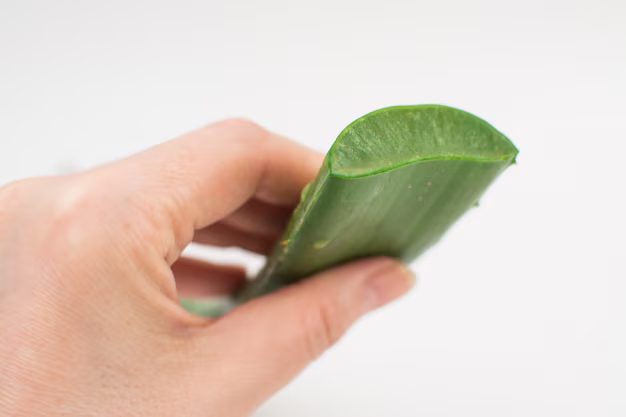Aloe Vera and Cancer: What You Should Know
Aloe vera has long been hailed as a natural remedy for everything from sunburn to digestive health. However, recent discussions have raised questions about its safety, particularly concerning its link to cancer. Can something so natural and widely used pose such a risk? In this article, we delve into the science behind aloe vera, explore its health benefits and potential risks, and examine whether there's any truth to the claim that aloe vera might cause cancer.
The Allure of Aloe Vera
Known for its thick, succulent leaves filled with gel-like fluid, aloe vera is a staple in many households. This hardy plant is easy to grow and has been used for centuries in traditional medicine, earning a place in everything from moisturizing lotions to health tonics.
The Wide Range of Benefits
Aloe vera's appeal is largely due to its versatile applications. Here's a quick look at some of its well-known benefits:
- Soothing Burns and Wounds: Aloe vera gel is often applied to skin irritations, sunburns, and minor cuts to promote healing.
- Skin Care: Its hydrating properties make it a popular ingredient in skincare products.
- Digestive Health: Aloe vera juice is consumed to aid digestion and soothe gastrointestinal issues.
- Nutrient-Rich: The gel contains vitamins, enzymes, and essential amino acids beneficial to overall health.
Aloe Vera: Nature's Healer or Hazard?
Despite its benefits, it's crucial to consider any potential risks. Concerns have been raised over specific compounds found in aloe vera that may not be entirely harmless, especially with improper use or consumption.
Aloe Vera and Cancer: Is There a Connection?
The claim that aloe vera can cause cancer usually centers around a particular finding from animal studies. To understand this perspective, we need to look into some scientific details.
The Role of Aloe Vera Latex
Aloe vera has two primary components: the gel and the latex. The gel is the transparent substance inside the leaf, widely known for its healing properties. The latex, however, is a yellowish liquid found just beneath the plant's outer skin.
- Latex Concerns: Aloe latex contains chemical compounds called anthraquinones, particularly aloin, which have laxative effects. Some studies, especially those involving rats, have suggested a possible link between these compounds and increased cancer risk when consumed in high doses.
Studies and Findings
- Animal Studies: Research on rats, consuming a diet high in aloin, indicated the development of intestinal tumors. However, these studies involved very high doses far exceeding typical human consumption levels.
- Human Studies: There's limited evidence on the carcinogenic effects of aloe vera in humans. Most studies have not proven a direct link between aloe vera gel and cancer. The World Health Organization and other relevant agencies continue to evaluate these findings.
Safe Usage Tips for Aloe Vera
While the risks associated with aloe vera might sound alarming, it's vital to understand how to use aloe vera safely and effectively.
Identifying the Type of Aloe Vera Product
- Gel Products: The clear gel from aloe vera is generally deemed safe when used topically or consumed in moderate amounts.
- Whole Leaf Extracts: These may contain both gel and latex, so it's essential to know what you're purchasing. Always opt for decolorized, purified products to avoid high aloin content.
Practical Recommendations
- Check Labels: Opt for aloe vera products that specify decolorized or aloin-reduced if you plan to ingest them.
- Use Topically: For skin benefits, stick to applying aloe vera gel topically, which is generally considered safe.
- Consult & Confirm: Before consuming aloe vera supplements or juice, particularly in large quantities, consult a healthcare provider.
Aloe Vera and Your Lifestyle: The Practical Side
Exploring the broader use of aloe vera, it's beneficial to balance awareness of its potential risks with an informed approach to incorporating it into your daily routine.
Holistic Health and Aloe Vera
Aloe vera can be part of a holistic health regimen, contributing to skin care and digestive support. Pair it with a balanced diet, adequate hydration, and regular exercise for overall well-being.
Myths vs. Reality
It's easy to be swayed by exaggerated claims about natural products, whether positive or negative. Thus, it's necessary to distinguish between myths and evidence-based information.
Myth: All aloe vera products are dangerous.
- Reality: When used properly, aloe vera gel is considered safe and beneficial for skin care.
Myth: Aloe vera can only be harmful if ingested.
- Reality: Issues mainly arise with latex-containing products or excessive consumption.
Myth: Aloe vera is a cure-all without risks.
- Reality: Like any natural remedy, aloe vera should be used with an understanding of its properties and potential side effects.
The Bottom Line
Aloe vera remains a popular natural remedy globally, thanks to its numerous health benefits. Concerns about its potential carcinogenic effects are mainly based on aloe latex and certain components like aloin used in high quantities in animal studies. With informed choices and prudent use, you can enjoy the advantages of aloe vera while minimizing its risks.
Essential Takeaways 🚀
- Gel vs. Latex: Opt for aloe vera gel products to avoid issues linked to latex.
- Moderation is Key: Avoid excessive consumption, especially of aloe latex-contained products.
- Informed Use: Always read labels and consult with health professionals before starting any supplement regimen.
- Balanced Perspective: Appreciate aloe vera's benefits while acknowledging potential risks for a well-rounded approach.
🔎 Stay Curious: Keep informed with trustworthy, science-based sources to guide your understanding and usage of natural remedies like aloe vera.

Related Articles
- Are Breast Cancer Lumps Painful
- Are Chills a Sign Of Cancer
- Are Colon Spasms a Sign Of Cancer
- Are Lytic Lesions Always Cancer
- Are Polyps Cancer
- Can a Blood Test Detect Cancer
- Can a Ct Scan Detect Cancer
- Can a Dexa Scan Show Cancer
- Can a Gastric Emptying Scan Show Cancer
- Can a Lung Biopsy Cause Cancer To Spread
